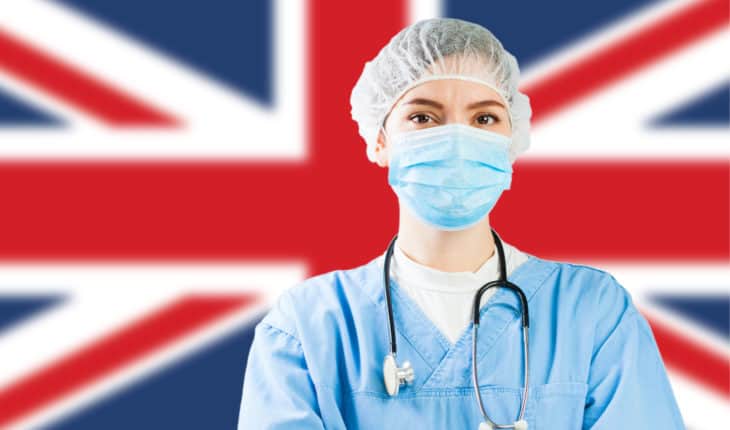How Covid-19 impacted UK healthcare (Peer reviewed – survey – people): Just one third of people in the UK managed to access the hospital care they needed at the peak of the first wave of the Covid-19 pandemic – according to new research from the University of East Anglia.
A new study published today looks at the extent to which people managed to access NHS healthcare in April 2020, and as lockdown restrictions eased.
The researchers found that, despite high levels of unmet need, there was equal access to NHS hospital care for people at different levels of income. And the NHS principle of equal treatment for equal need was upheld.
However, people on higher incomes had better access to GP consultations, prescriptions and medical helplines at the peak of the first wave.
Dr Apostolos Davillas, from UEA‘s Norwich Medical School, said: “A founding principle and duty of the NHS is to ensure equal access for equal need irrespective of age, location or ability to pay.
“When the Covid-19 pandemic hit, the UK reallocated resources within the health and social care systems to handle coronavirus cases. NHS trusts redesigned their services to release capacity for Covid-19 patients by discharging thousands to free up beds and postponing planned treatments.
“This affected their ability to meet health care need due to other health conditions, illnesses or health emergencies.
“We wanted to find out whether people in the UK were able to use the healthcare services they needed during the first wave of the Covid-19 pandemic, through lockdown and beyond.”
The researchers studied data from the UK Household Longitudinal Study (UKHLS), which launched a Covid-19 survey to examine the impact of the coronavirus pandemic.
The study included a sample of 6,598 participants who reported that they had a health care need, and the researchers estimated their healthcare use as the pandemic unfolded between April and July 2020 – to work out the ‘unmet need’ for healthcare. The study also looked at whether people’s long-run income affected access to healthcare.
They found that unmet need was highest for both inpatient and outpatient hospital care shortly after the introduction of the first lockdown on March 23. Levels of unmet need were lower for non-emergency medical helplines and GP consultations, while much lower levels of unmet need were evident for community pharmacist advice, over the counter medications and use of prescription medicines.
Dr Davillas said: “Our study shows that there was a more pronounced impact on secondary care versus primary care services during the peak of the first wave. For example, in late March and April only 33 per cent of those who needed inpatient care managed to use those services, however, 98 per cent of respondents reported that they got their prescription medicines.
“Unmet need became less evident from May through to July 2020. For example, outpatient consultations increased from 47 per cent in April to 63 percent in June, following the easing of lockdown. About 70 per cent of those who needed outpatient care had access to it in July, after the complete easing of the first lockdown on July 4.
“When it comes to the relationship between people’s use of healthcare and their income, we found that despite high levels of unmet need, people of all incomes had equal access to the hospital care that was provided. But we found that more well-off people had better access to GP consultations, prescriptions and medical helplines at the peak of the first wave.
“In a publicly funded health care system, pro-rich inequity in health care use may be because people on lower low-incomes are heavily time-constrained, due to harsher employment and living arrangements, and may be less able to seek the health care they need. But we found that this inequality was reduced as the pandemic progressed.
“However, we found persistent pro-rich inequities for services that may be related to people’s ability to pay, such as over the counter medications and advice from community pharmacists,” he added.
‘Unmet health care need and income-related horizontal equity in use of health care during the COVID-19 pandemic’ is published in Health Economics.. The paper is co-authored by Dr Apostolos Davillas (UEA) and Prof Andrew M. Jones (University of York).
A copy of the paper is available via the following Dropbox link: How Covid-19 impacted UK healthcare https://www.dropbox.com/sh/7ax6417jdq9f7hy/AACMAeFi_1QxmliUX3VDR-jsa?dl=0
- Gut microbiome could delay onset of type 1 diabetes - 3rd April 2025
- The da Vinci 5 Robot Is Set To Transform Bariatric Care: - 31st March 2025
- Beyond money: the hidden drivers fuelling child food insecurity - 31st March 2025






